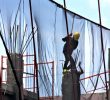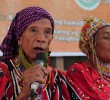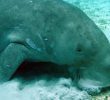With the Maranao communities plagued by poverty and short in social services, election season is considered �paskuhan� (Christmas season). Politicians� money flows like rain, mainly to buy the votes of the Maranaos.
BY DABET CASTA�EDA
Bulatlat
Election Watch
Vol. VII, No. 17, June 3-9, 2007
MASIU, Lanao del Sur, Philippines — Lanao del Sur is home to the Maranaos (people of the lake), a Muslim tribe. The province forms the western portion of Northern Mindanao, bounded on the north by Lanao del Norte, on the east by Bukidnon, on the west by Illana Bay, and on the south by Maguindanao and Cotabato.
It has 39 municipalities and one city, the Islamic City of Marawi which is the province�s city capital.
Among 81 provinces in the Philippines, Lanao del Sur is among the 20 poorest provinces. Poverty incidence here is worsening based on data from the National Anti-Poverty Commission (NAPC): It ranked 16th in the list of poorest provinces in 1997, then it slid to 12th and 10th in 2000 and 2003, respectively.
Nine of the province�s municipalities (i.e., Marogong, Piagapo, Tuburan, Sultan Dumalondong, Calanogas, Binidayan, Kapatagan, Bumbaran, Pagayawan) were among the country�s 40 poorest municipalities in the year 2000.
Lanao del Sur is one of five provinces comprising the Autonomous Region in Muslim Mindanao (ARMM) which is the poorest region in the country, according to NAPC.

In the Dark. A blackout in Masiu forced election workers to work in the dark. (Bulatlat.com photo by Dabet Castaneda)
As a Muslim tribe, the Maranaos are engaged in trading or what is known locally as �buy-and-sell.� In the rural communities, they trade palay (rice grains), corn, coconut, tobacco, coffee and other crops. In Metro Manila, where clusters of Muslims have migrated to escape poverty and armed conflicts, the Maranaos sell garments, shoes, jewelry, VCDs and DVDs. Many of the VCDs and DVDs are pirated, authorities say.
Abdul Rakman Ulama, formerly appointed mayor of Binidayan, explains that the Maranaos are primarily farmers but are driven into trading because farms remain backward. Carabaos (water buffalos) and cows are still used to till the land unlike in other rural areas where hand tractors are now the norm.
Ulama also says that almost 50 percent of the agricultural land in Lanao del Sur have no irrigation facilities and, as a result, remain idle.
With the Maranao communities plagued by poverty and short in social services, election season is considered �paskuhan� (Christmas season), Ulama says. This is when politicians� money flows like rain, mainly to buy the votes of the Maranaos. It is mostly the local candidates who tend to buy votes from individuals, Ulama says. Bulatlat
2007 Elections









